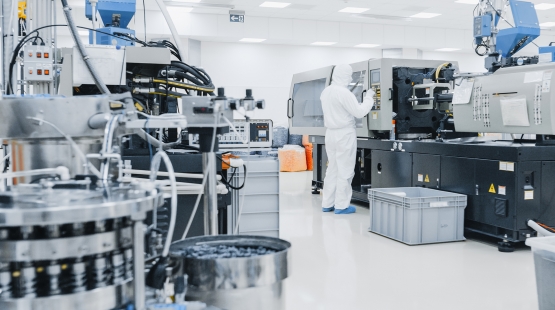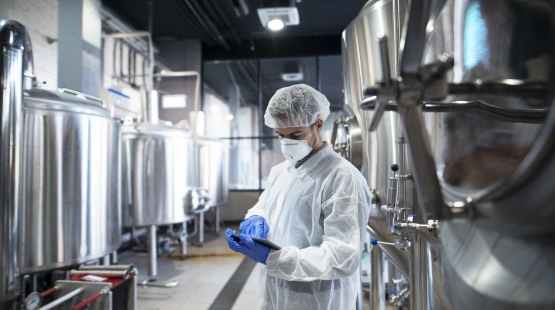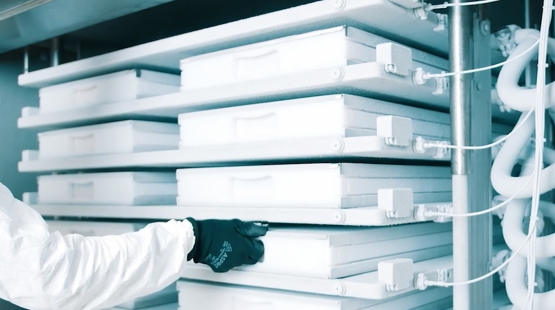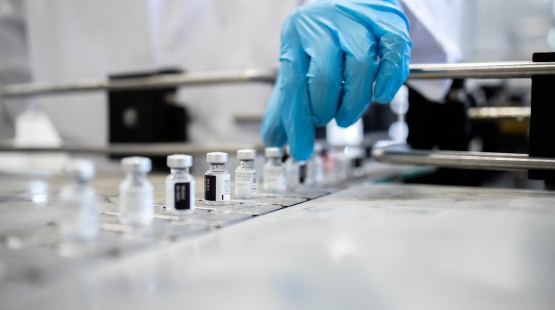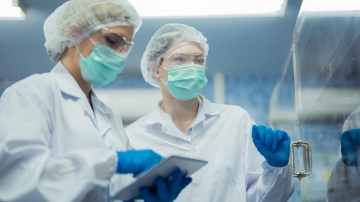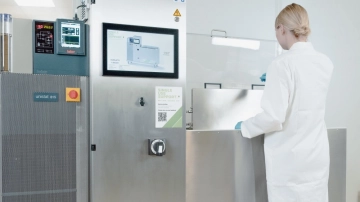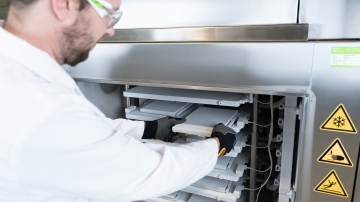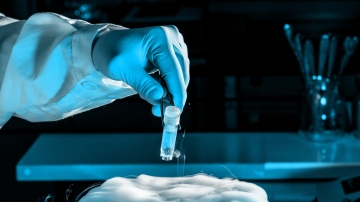Challenges in microbial fermentation manufacturing
Table of contents
ShowMicrobial fermentation manufacturing is an effective method for the production of APIs, bioconjugates and smaller biologicals that play an important role in biotechnology and the production of biopharmaceuticals.
Still, the fermentation process comes with its own challenges. Insufficient scalability in pharmaceutical fermentation and the risk of contamination through other microorganisms being one of the biggest. Therefore, optimization of fermentation technology is needed to avoid product loss and unsatisfactory growth rates to be able to produce on an industrial-scale.
Manufacturers face different challenges during microbial fermentation. Explore the 7 biggest challenges followed by the introduction of new solutions.
Challenge No. 1: Timelines
In the production of smaller biologics such as peptides, proteins, cytokines or antibody fragments, microbial expression in bacteria, yeast or fungi is often the preferred method. Compared to cell culture expression, microbial fermentation shows faster growth rates which saves time and production costs.
However, development timelines in the production of pharmaceutical APIs through synthesis and microbial fermentation process development should not be underestimated. As unanticipated problems can occur during the process and change the timelines and a tight budget is often a factor in developmental projects, constant monitoring and flexible solutions have to be part of it.
Microbial fermentation needs technologies that help accelerate handling of ferments. Fast throughput, rapid freezing, and seamless end-to-end processes with reduced product loss help to overcome this challenge.
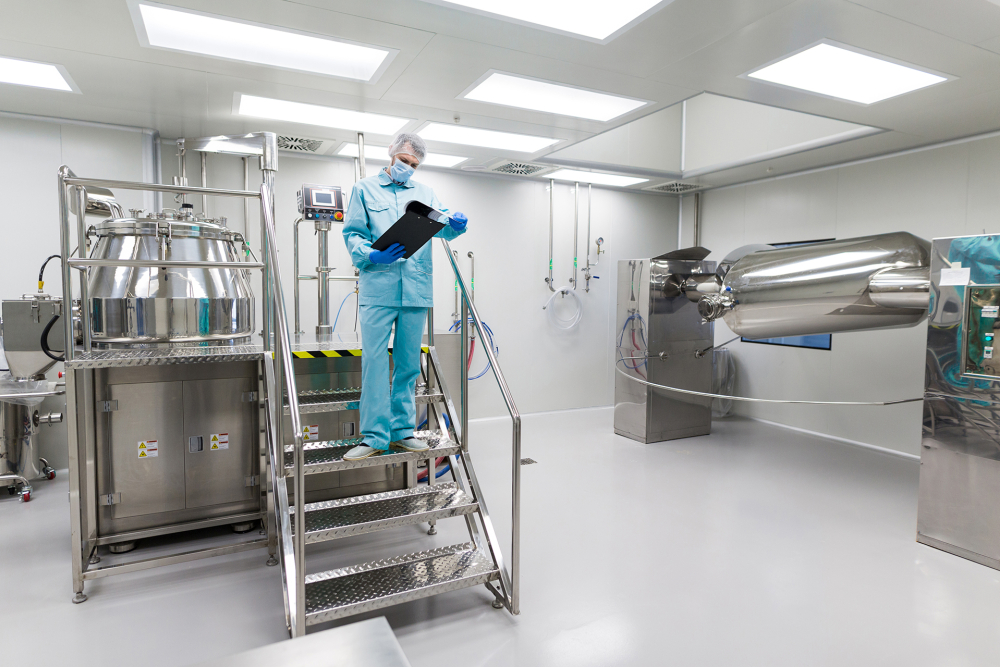
Challenge No. 2: Costs
In comparison to cell culture fermentation, microbial fermentation comes with several advantages. Two main benefits are shorter expression time and large-scale expression rates as well as reduced variation between batches. Microbes like Escherichia coli, Staphylococcus aureus, Streptomyces, Aspergillus or Pichia pastoris have proved to be very valuable in the production of small molecule antibiotics, enzymes and proteins.
To ensure the success of biochemical projects, it is necessary to reduce product loss and provide automated processes in order to minimize the risk of human error in industrial biotechnology manufacturing. Both factors are decisive for the reduction of operational costs in short OPEX (operational expenditures). A more streamlined and accurate process does not only save time and guarantees a valuable product, it is also able to reduce overall costs.
The initial costs in short CAPEX (captial expenditure) for automated single-use technologies can be amortized quickly with low operational costs. Thus, single-use solutions are a good choice for overall cost reduction.
Challenge No. 3: Scale-up in fermentation
Since industrial fermentation often aims at large-scale production, the robustness of microbial strains is an important factor in terms of reproducibility. To achieve stable conditions for microbial cell growth, small-scale experiments in a bioreactor can help to establish process characterization without the risk of a lot of product getting lost.
It is important to know about possible impacts of metabolic engineering in microbiology when handling filamentous fungi. Among those is the testing of different conditions and their effects on growth rates. Potential batch sizes range up to 1000 liters per day. The ability to handle this volume properly must therefore be in place. Adequate freezing and the availability of storage capacity are key.1
Challenge No. 4: Capacity & Capabilities
In order to achieve the best outcomes for a project, in depth knowledge about a cell line is necessary. As bioprocessing and cell engineering depend on each other but often enough companies do not have the ideal structures like high-throughput technologies to support this process, manufacturers face challenges.
The need to act quickly to save time and reduce cost calls for expertise and the right equipment. Providing capacity in terms of storage space or in terms of efficient process facilities is another challenge that not all microbial fermentation manufacturers can solve adequately on their own.
In many cases, a cooperation with a CMO or CDMO is an opportunity to improve knowledge on genomics. Moreover, CDMOs comply with cGMP standards and offer capacities for processing large volumes.
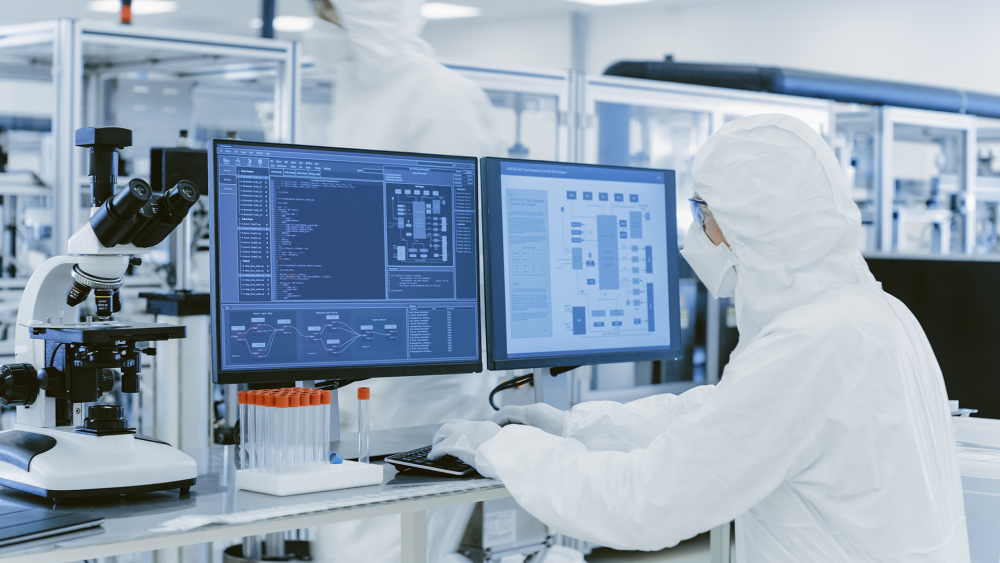
Challenge No. 5: Product Quality
Product viability, as the first priority when it comes to quality assurance, is jeopardized by cryoconcentration, which must therefore be avoided. Cryoconcentration is caused by slow freezing, occurring with regular or blast freezers. Fast, controlled freezing with a plate freezer eliminates this risk.
With controlled plate-based freezing, the quality of the liquids is maintained during processing steps - and fast freezing is even possible for large volumes.
Therefore, regulatory measurements as approved by the FDA and EMA have to be followed regarding quality control. If cGMP standards cannot be met, a collaboration with another company can be the right solution to overcome those problems.
Challenge No. 6: The technology gap
Microbial fermentation can be found throughout most life sciences. Synthetic biology is an important factor for food products as well as fertilizers. When using fermentation processes in biopharma, the challenge is to follow aseptic processing.
The existent technology gap between upstream and downstream bioprocessing and the fill-finish process in pharmaceutical fermentation leaves too much room for human errors and contamination. Automated systems and transport solutions reduce this risk and guarantee safe manufacturing from start to finish.
Even when handling large volume bioprocess containers, manual handling is not yet history. It is not uncommon that bioprocess containers with 50 liters are moved manually.

Challenge No. 7: Finding the right partner
The challenges of microbial fermentation manufacturing can rarely be overcome single-handedly. Since the main goal is to produce a high-quality drug product, all necessary steps from developing to production and distributing should be carried out by experts of their fields.
Partnering with a CDMO can allow for a more streamlined and efficient process. In addition, the need for aseptic processing can be met through the use of automated end-to-end solutions.
Microbial fermentation manufacturing - advances with single-use technology
With the help of single-use technologies it becomes possible to make the most of the potential of microbial fermentation manufacturing. Most challenges can be overcome by the help of our automated end-to-end solutions. While the probability for contamination, product loss and human error is minimized, the different steps of the manufacturing and distribution process become more efficient.
We value all projects, which is why scalability is important to us. Our modular solutions range from milliliters to over 1000 liters to meet all of your needs.
In microbial fermentation manufacturing, one of the biggest challenge is fast freezing of large volumes. With RoSS.pFTU XL, Single Use Support offers a solution for freezing large single-use bioprocess containers in a controlled manner using plate-based freezing technology. Fully automated processes eliminate manual handling and Single Use Support's platforms can be used for all bags, as it is completely vendor-agnostic.
More about microbial fermentation manufacturing
- Optimization and scale up of industrial fermentation processes, https://pubmed.ncbi.nlm.nih.gov/16001256/, Published 26.10.2005


